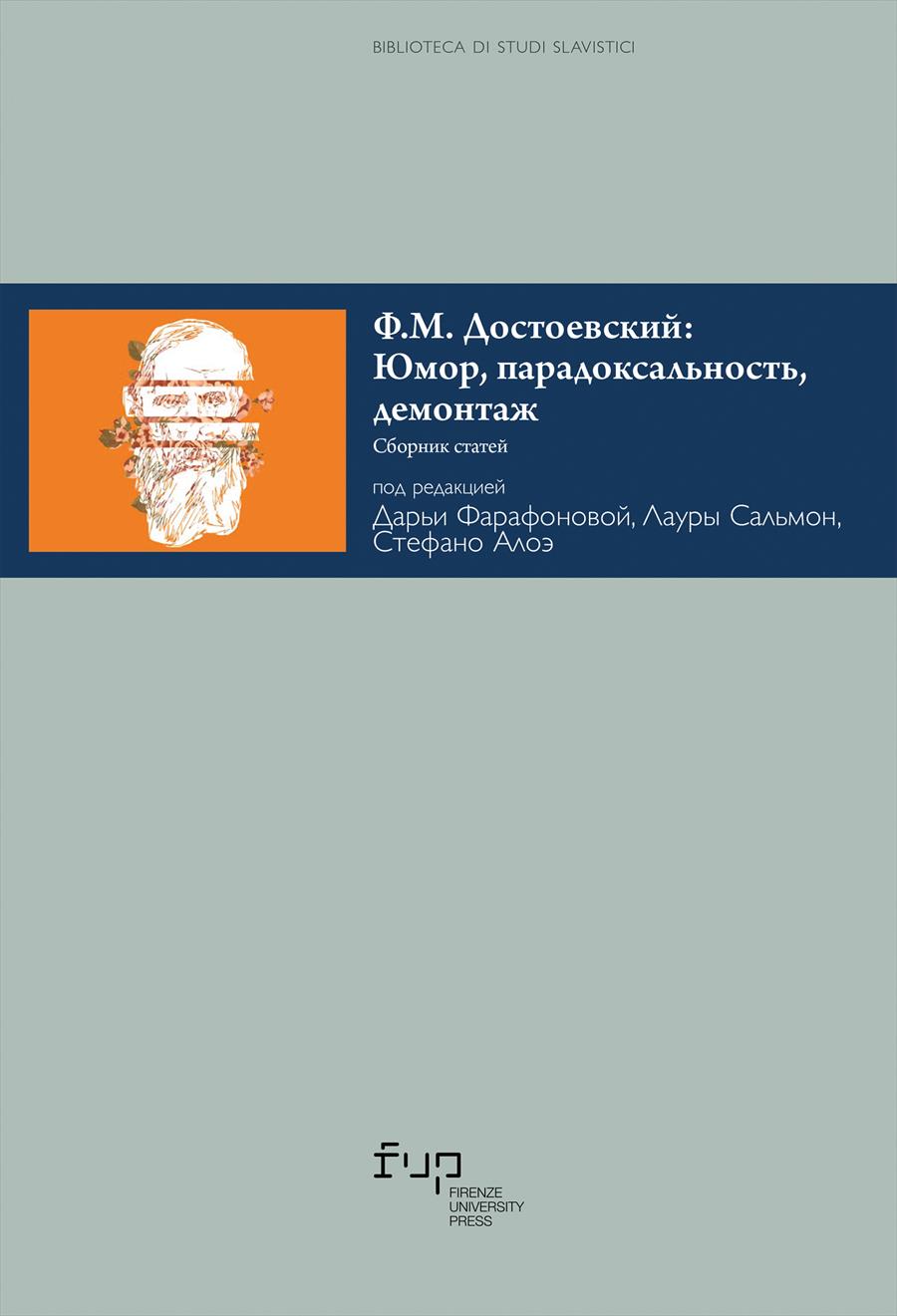- Ф.М. Достоевский: Юмор, парадоксальность, демонтаж
- Edited by Dar'ja Farafonova, Laura Salmon, Stefano Aloe
Диалектика Достоевского: имя Отца и спасительная сила детской жизни
- Alexander Isakov
- © 2023 Author(s) |
- CC BY 4.0
- DOI: 10.36253/979-12-215-0122-3.10
Dostoevsky’s Dialectic: The Name of the Father and the Saving Power of Childhood. The artistic experience of Dostoevsky’s novels combines two rather heterogeneous hermeneutic strategies – the analysis of the unconscious and of existential utopia. In the first case, Dostoevsky problematizes the completeness of the symbolic order of culture as such through the thematization of the figure and name of the Father. From the perspective of the second strategy, Dostoevsky creates his own utopia of a symbolic order, with the eternal substance of people’s life capable of infinite renewal in the child’s soul in the role of the great Other. His novels reveal what can be called the creative core of culture. The murder of Fyodor Karamazov is an archetypal event, a sacrifice of the Body of the Father for the sake of the NAME of the dead Father, it initiates a paradigmatic process in the Symbolic.
- Keywords:
- Dostoevsky,
- Lacan,
- Body of the Father,
- Father’s Name,
- childhood,
Russian Academy of Sciences, Russian Federation - ORCID: 0009-0004-2049-8288
- Барт, Карл. 2005. Послание к Римлянам, пер. с нем. Владимира Хулапа. Москва: Библейско-богословский институт св. апостола Андрея.
- Бахтин, Михаил М. 2002. Проблемы поэтики Достоевского. В кн. Михаил М. Бахтин, Собрание сочинений в 7-ми тт., т. 6. Москва: Русские словари.
- Беньямин, Вальтер. 2019. “«Идиот» Достоевского.” В кн. Вальтер Беньямин, Девять работ, пер. с нем. Сергея А. Ромашко. Москва: Панглосс.
- Исаков, Александр Н. 2015. “Достоевский и Лакан. Анализ текста «Преступления и наказания».” EINAI: философия и теология 4 (1): 22-43.
- Касаткина, Татьяна А. 2015. Священное в повседневном: двусоставный образ в произведениях Ф.М. Достоевского. Москва: ИМЛИ РАН.
- Лакан, Жак. 2006. Имена-Отца, пер. с франц. Александра К. Черноглазова. Москва: Гнозис; Логос.
- Суворин, Алексей С. 1923. Дневник. Москва – Петроград: Л.Д. Френкель.
Chapter Information
Chapter Title
Диалектика Достоевского: имя Отца и спасительная сила детской жизни
Authors
Alexander Isakov
Language
Russian
DOI
10.36253/979-12-215-0122-3.10
Peer Reviewed
Publication Year
2023
Copyright Information
© 2023 Author(s)
Content License
Metadata License
Bibliographic Information
Book Title
Ф.М. Достоевский: Юмор, парадоксальность, демонтаж
Editors
Dar'ja Farafonova, Laura Salmon, Stefano Aloe
Peer Reviewed
Number of Pages
222
Publication Year
2023
Copyright Information
© 2023 Author(s)
Content License
Metadata License
Publisher Name
Firenze University Press
DOI
10.36253/979-12-215-0122-3
ISBN Print
979-12-215-0121-6
eISBN (pdf)
979-12-215-0122-3
eISBN (epub)
979-12-215-0123-0
Series Title
Biblioteca di Studi Slavistici
Series ISSN
2612-7687
Series E-ISSN
2612-7679
